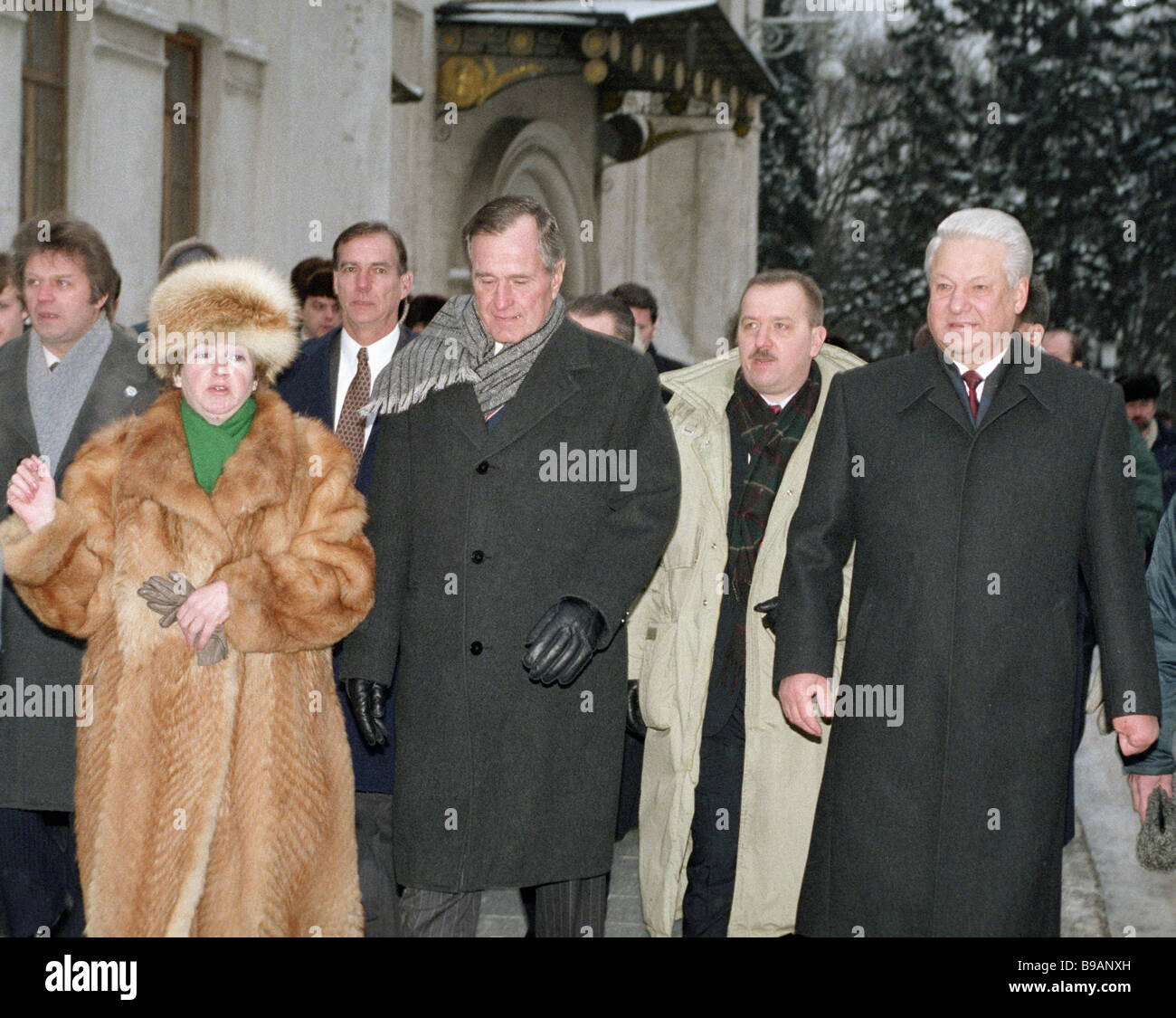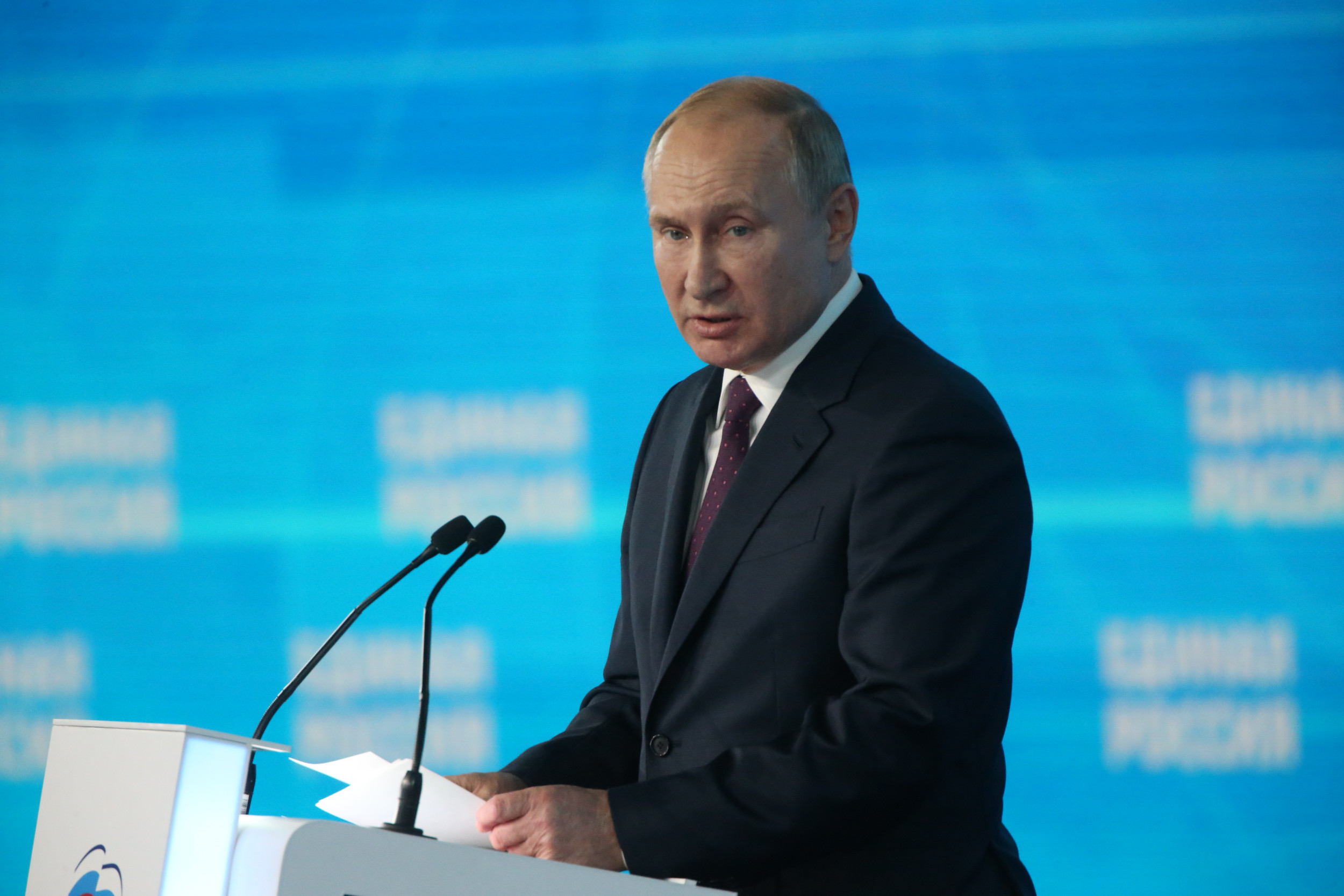Boris Yeltsin: The First President Of Post-Soviet Russia
Editor's Note: Boris Yeltsin: The First President Of Post-Soviet Russia was published today. This topic is important to read because it provides and discusses in-depth details of Boris Yeltsin's era.
Our team has put together this Boris Yeltsin: The First President Of Post-Soviet Russia guide to help you make the right decision.
Key Differences:
| Feature | Boris Yeltsin: The First President Of Post-Soviet Russia |
|---|---|
| Time Period | 1991-1999 |
| Key Events | Dissolution of the Soviet Union, economic reforms, Chechen Wars |
| Legacy | Controversial figure with a mixed legacy |
Main Article Topics:
FAQ
This section provides concise answers to frequently asked questions about Boris Yeltsin, the first president of post-Soviet Russia.

Novodevichy Cemetery. Grave of First President of the Russian - Source www.dreamstime.com
Question 1: When and where was Boris Yeltsin born?
Boris Nikolayevich Yeltsin was born on February 1, 1931, in the village of Butka, Sverdlovsk Oblast, Russian SFSR, Soviet Union.
Question 2: What were Yeltsin's main policies and accomplishments as president?
Yeltsin's presidency was marked by significant political, economic, and social reforms. His main policies included introducing a market economy, promoting democratic institutions, and strengthening Russia's international standing.
Question 3: What controversies and scandals surrounded Yeltsin's presidency?
Yeltsin faced numerous controversies, including allegations of corruption, human rights abuses during the Chechen War, and his own health problems, which led to his resignation in 1999.
Question 4: What was Yeltsin's legacy as president?
Yeltsin's legacy is complex and contested. He is credited with leading Russia through a difficult transition from communism to democracy and a market economy, but he is also criticized for his authoritarian tendencies and the social and economic turmoil that accompanied his presidency.
Question 5: What were Yeltsin's personal and political beliefs?
Yeltsin was a charismatic and ambitious politician who evolved from a loyal Communist Party member to a strong advocate for democratic reforms. He believed in the power of the people and the importance of individual freedom.
Question 6: What were Yeltsin's major foreign policy initiatives?
Yeltsin pursued a pragmatic foreign policy, seeking to improve relations with Western countries while also preserving Russia's interests. He played a key role in the collapse of the Soviet Union and the establishment of the Commonwealth of Independent States.
In conclusion, Boris Yeltsin was a pivotal figure in Russian history, leading the country through a tumultuous period of transition from communism to democracy and a market economy.
Tips
The presidency of Boris Yeltsin: The First President Of Post-Soviet Russia was a pivotal period in Russian history, marked by both successes and challenges. By examining his strategies and reflecting on his experiences, we can glean valuable insights that can guide us in our own endeavors.
Tip 1: Cultivate a Strong Vision and Strategic Plan
Yeltsin's vision for a post-Soviet Russia was clear: a democratic, market-oriented nation. He developed a comprehensive plan for achieving this vision, including measures for economic liberalization, political reform, and the creation of a new constitution.
Tip 2: Assemble a Capable and Loyal Team
Yeltsin recognized the importance of surrounding himself with competent and dedicated individuals. He delegated responsibilities effectively and fostered a sense of camaraderie and support within his team.
Tip 3: Be Decisive and Willing to Take Risks
Yeltsin faced countless challenges throughout his presidency, but he never shied away from making bold decisions. He dissolved the Soviet parliament in 1993, a move that ultimately helped secure Russia's transition to democracy.
Tip 4: Adapt to Changing Circumstances
The post-Soviet era was characterized by rapid and unpredictable change. Yeltsin's ability to adapt to new situations and adjust his strategies accordingly was crucial for maintaining stability and overcoming obstacles.
Tip 5: Seek International Support and Cooperation
Yeltsin understood the importance of forging strong relationships with other nations. He actively sought financial assistance from Western countries and developed partnerships with international organizations to support Russia's economic and political transformation.
Tip 6: Prioritize Economic Growth and Stability
Yeltsin implemented a series of economic reforms aimed at stabilizing the Russian economy and fostering growth. These reforms, while initially painful, laid the groundwork for Russia's subsequent economic recovery.
Tip 7: Promote Democracy and Human Rights
Yeltsin was a strong advocate for democracy and human rights. He introduced a new constitution that guaranteed basic freedoms and established a pluralistic political system.
Tip 8: Leave a Legacy of Progress and Stability
Despite the challenges he faced, Yeltsin's presidency left a lasting legacy on Russia. He oversaw the transition from a totalitarian regime to a modern, democratic state and laid the foundation for future progress.
These tips provide valuable insights into the leadership style and strategies of Boris Yeltsin: The First President Of Post-Soviet Russia. By reflecting on his experiences and learning from his successes and mistakes, we can enhance our own decision-making, leadership abilities, and commitment to positive change.
Boris Yeltsin: The First President Of Post-Soviet Russia
Boris Yeltsin, Russia's first democratically elected president, played a pivotal role in shaping the post-Soviet era. His presidency was marked by significant political, economic, and social reforms.
- Political Reforms: Yeltsin initiated democratic reforms, dismantling the Soviet Union and introducing a multi-party system.
- Economic Restructuring: He implemented drastic economic reforms, transitioning from a centrally planned economy to a market economy.
- Challenges and Controversies: His presidency was marked by political instability, economic turmoil, and the infamous 1993 constitutional crisis.
- Foreign Policy: Yeltsin steered Russia towards integration with the West and played a key role in the end of the Cold War.
- Legacy: Yeltsin's presidency was a transformative period, paving the way for a new era in Russian history.
- Economic Reforms: Yeltsin's privatization policies led to the rise of oligarchs and widespread corruption.
The legacy of Boris Yeltsin is complex and multifaceted. His reforms laid the foundation for Russia's transition to democracy and a market economy. However, his presidency was also marred by economic inequality, political instability, and the loss of global influence.

Russian President Boris Yeltsin first right and U S President George - Source www.alamy.com

Boris Yeltsin's Former Chief of Staff '99 Percent Certain' Vladimir - Source www.newsweek.com
Boris Yeltsin: The First President Of Post-Soviet Russia
Boris Yeltsin, the first president of post-Soviet Russia, played a pivotal role in shaping the country's political and economic landscape during a transformative period in its history. His presidency, marked by both achievements and challenges, left a lasting impact on Russia and the wider geopolitical landscape.

Yekaterinburg, Sverdlovsk Russia - 04 04 2022: Ural Federal University - Source www.dreamstime.com
Yeltsin's rise to power came amidst the collapse of the Soviet Union and the subsequent political and economic turmoil. As the leader of the Russian Soviet Federative Socialist Republic, he played a key role in the dissolution of the Soviet Union and the establishment of the independent Russian Federation.
During his presidency, Yeltsin embarked on a series of economic reforms aimed at transitioning Russia from a centrally planned economy to a market-based system. These reforms, known as "shock therapy," involved the rapid privatization of state-owned industries and the introduction of free market principles. While these measures aimed to stimulate economic growth, they also led to widespread unemployment, inflation, and social unrest.
Yeltsin's presidency was also marked by political instability, including the August 1991 coup attempt by hardline communists. Yeltsin's defiance during the coup solidified his position as a reformer and strengthened his commitment to democratic principles.
Despite the challenges, Yeltsin's presidency laid the foundation for Russia's transition to a market economy and democratic governance. His legacy continues to be debated, with some praising his leadership during a turbulent period and others criticizing his economic policies and their long-term impact.
| Key Achievements | Challenges and Controversies |
|---|---|
|
|
Conclusion
Boris Yeltsin's presidency was a complex and consequential chapter in Russian history. His actions and policies shaped the post-Soviet era, both domestically and internationally. Despite the challenges he faced, Yeltsin's commitment to democratic principles and economic reform left a lasting impact on Russia.
Yeltsin's legacy continues to be a subject of debate and analysis. However, there is no doubt that he played a pivotal role in Russia's transition from communism to a new era of political and economic development.